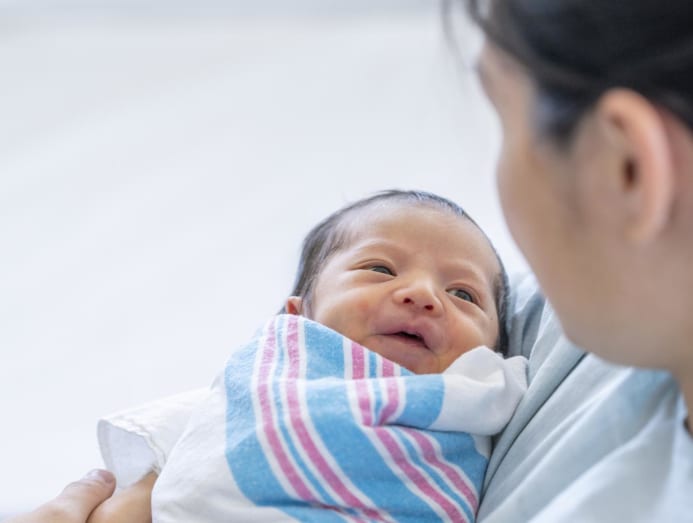The post-natal confinement period is a time for new mothers to recover from the baby’s birth and can last from 30 to 100 days, depending on different cultural practices.
It’s a time for the mums to be taken care of with nutritious food, post-natal practices and help with the newborn.
Options for confinement care in Singapore include staying at a confinement centre, hiring a live-in confinement nanny, getting help from a relative (like your mum, mother-in-law or aunt), or doing it on your own.
Whichever you choose, prioritise your well-being and your family’s, says freelance artist Michelle Goh, who had her firstborn during the pandemic. “Motherhood is a marathon – the first 30 days are just the beginning,” she said.
CONFINEMENT NANNYIncludes both freelance nannies and nannies from confinement agencies.
THE PROSHome comforts. Besides being in familiar surroundings, you’ll be able to figure out how to fit your newborn into the home routine from day one.
Personalised care and attention. A confinement nanny’s duties include caring for your newborn and you, cooking confinement food (which may include doing the marketing) and guiding you on basic infant care. Some even help with laundry and cleaning.
Ask the nanny to tailor to your preferences, for example, if there are certain foods you don’t eat or if you would like to breastfeed your newborn fully.
CONFINEMENT CARE TIPS FROM MUMS1. Trust your confinement nanny, said HR professional Nisha Booluck, who struggled with this. “The maternal instinct is so strong that I became super defensive of my baby. But it is important to try and trust the process, and take it easy for a bit.”
2. Michelle Chia, a family manager and mum of three, recommends speaking with mummy friends about their expectations and experiences. “You can even ask them what their red flags are in determining if you should change your confinement lady.”
3. To avoid conflict, Caryn Lim, a mum of three and founder of a home medispa company, advises you speak with the confinement nanny beforehand. “Know their preferences – formula vs breastfeeding, health concerns and diet preferences. All these may seem ‘minor’ but could potentially be bigger issues when you have to live together for a period of time.”
Collapse ExpandTHE CONSLoss of privacy. You’ll have to adapt to having a stranger living in your home for at least a month.
Said family manager and mum of three, Michelle Chia: “I had to get used to having a stranger in my house. And because it was during the pandemic, we were unable to meet with or speak to the confinement agency’s nanny prior, so there was some awkwardness between us as we didn’t know what to expect from each other.”
Personality clashes. Differences in cultural practices, expectations and personality between the confinement nanny and yourself, and even your domestic helper, could lead to friction.
Caryn Lim, a mum of three who owns a home medispa company, experienced this. “The confinement nanny did not get along well with my helper and that was quite a challenge for me,” she said.
“On top of caring for my newborn and myselfkubiwin, handling the relationship issues between them was the last thing I needed. I had to get my husband to help manage their issues so that the three-month confinement period would go smoother.”
 Hiring a live-in confinement nanny gives the mother and baby personalised attention but there is also potential for conflict and personality clashes. (Photo: iStock/FatCamera)
Hiring a live-in confinement nanny gives the mother and baby personalised attention but there is also potential for conflict and personality clashes. (Photo: iStock/FatCamera)